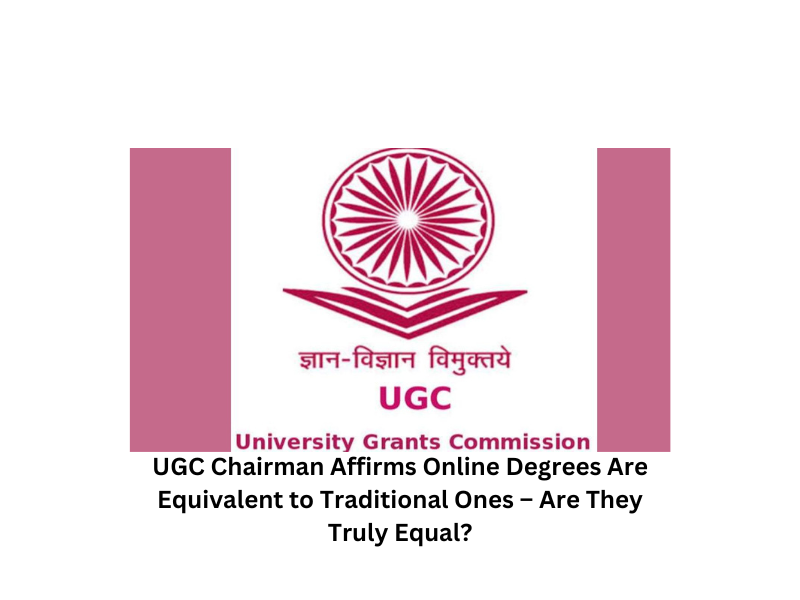The Chairman of the University Grants Commission (UGC), M. Jagadesh Kumar, recently stated that online degrees are now equal to traditional and distance learning programs. This marks a shift in educational norms, aimed at improving the credibility of online learning. However, the key question remains: Are online degrees truly respected as much as traditional ones by employers and society?
Rising Popularity of Online Education in India
Indian universities have increasingly embraced online education to meet the growing demand for flexible learning. Prestigious institutions like Jawaharlal Nehru University (JNU), Jamia Millia Islamia University, Manipal Academy of Higher Education, and Symbiosis International in Pune now offer a variety of online programs. These include degrees in Business Administration (BBA), Commerce (BCom), Master of Business Administration (MBA), MSc in Data Science, and MA in Sociology.
The UGC’s recognition of online degrees as equivalent to traditional degrees highlights the shift toward online learning. It offers students, especially those in remote areas or with busy careers, a flexible and accessible way to pursue higher studies.
Also Check – Online MBA vs. Traditional MBA: Which One Should You Choose?
Employer Perceptions: The Challenge of Acceptance
Despite the growing acceptance of online degrees in academia, a bias still exists in the job market. Employers, especially in certain fields, tend to prefer candidates with degrees from traditional, in-person education. This is particularly true in areas such as management, which emphasize leadership, technical skills, and communication.
A study by the Graduate Management Admission Council (GMAC) found that employers still favor in-person MBA graduates over those who completed their degrees online. This preference is due to the belief that face-to-face interactions in traditional programs develop stronger leadership and communication skills.
However, global trends are changing. Multinational companies (MNCs) are increasingly focusing on skills rather than the format of degrees. As a result, online education is being seen as a viable way to develop crucial skills. Companies now prioritize abilities and experience over the type of degree a candidate holds.
The Shift Towards Skills-First Hiring
The rise of skill-based hiring has encouraged professionals to pursue online programs offering specialized skills in fields such as data analytics, AI, and business management. Employers are now more focused on assessing a candidate’s specific skills, rather than just valuing a traditional degree. This shift in hiring practices suggests that online degrees from reputable institutions are gradually gaining more recognition.
Conclusion: Online Degrees and Their Growing Credibility
The perception of online education as a legitimate alternative to traditional learning continues to evolve. The UGC’s endorsement is a positive step toward leveling the playing field between online and traditional degrees. However, broader societal and employer acceptance may take more time. As online education improves in quality and accessibility, we may see more convergence between the two educational paths.
Important reads

Leave a Reply